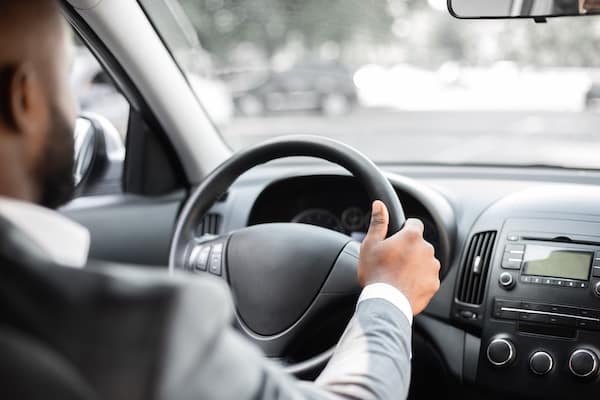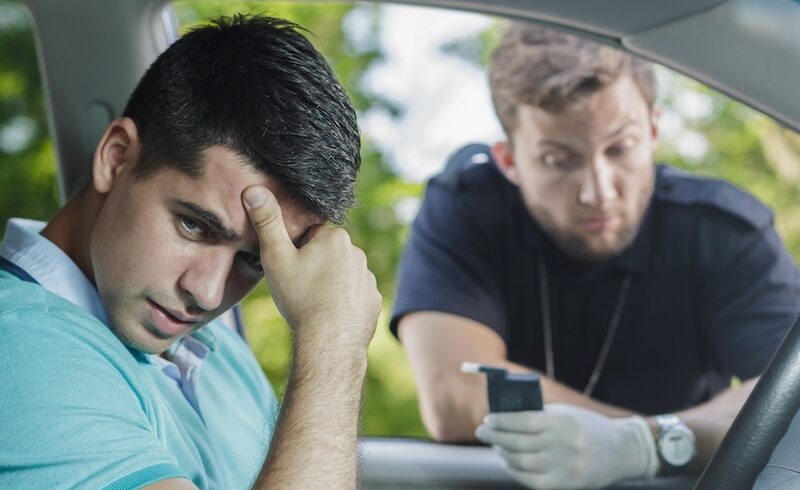
We all make mistakes, but unfortunately some have difficult consequences. If you’ve had several run-ins with the law on the highway, then you may have found yourself with a revoked license. You can no longer legally drive unless you have a special hardship license that allows you to drive for work or some other limited reason.
A revoked license is different than a suspended license in many ways. We created this guide to help you determine the difference and learn the specific ways to get your license back. It’s also important to know what you need to get your license back from the state.
Difference Between Suspended and Revoked License
If you’ve had more than three moving violations within a year, then your license was likely suspended. A suspension means you temporarily lose the ability to drive with your license until the suspension period is over.
Once the suspension is over, you pay a fee to get the license reinstated. Once that happens, you are legal to drive again. If your license is revoked, it’s not as simple.
Revocation is more severe than a suspension. The State gives you a revocation period that, once it passes, makes you eligible for reinstatement. However, eligibility does not mean automatic reinstatement like a suspension.
It means you now can try and get your license reinstated. You need to go to a hearing before the Secretary of State and be granted your driving privileges. The extent of the revocation and any requirements of reinstatement depends on the offenses that initiated the revocation.
There are two types of hearings by the Illinois Secretary of State, formal and informal. Informal hearings can be done at most DMV facilities and are usually quick and straightforward. If the offense was egregious or is one of several unlawful occasions, then you may be required to have a formal hearing.
Formal hearings are only available at Mount Vernon, Springfield, Joliet, and Chicago. These are hearings with a prosecutor and you, and if you choose to, your lawyer. There is the presentation of evidence on both sides about reinstatement. In the end, the hearing officer decides to reinstate your license or not.
Why Would I Get My License Revoked?
Revocation of your license happens after several minor offenses or a serious offense. If you’re convicted of driving under the influence, then it’s a minimum of a 1-year revoked license. If you have subsequent DUI convictions, then the revocation period extends and could lead to a lifetime revocation.
If you’re in an accident and someone is injured, but you leave the scene, then your license can get revoked. When involved with an accident, it’s important to stay and call the local police.
When you’re charged with a driving offense and given a court date, you need to go. The court date is where you provide your side of the story and the judge decides the final verdict. If you miss your court date, then your license can be suspended or revoked, depending on the charge, and the judge issues a bench warrant.
This means, if the police see you, then they can arrest you for failure to appear on your court date.
If you have several traffic violations within a short period, then it can lead to a revocation. Also, if you drive on a suspended license, then you could end up with a revocation.
A DUI is easily the most common way a person’s license is revoked. If there are extenuating circumstances such as injuries or death involved, then it is even more serious.
How Do I Get My Revoked License Back?
You should have a lawyer with you if seeking reinstatement. Furthermore, you need to have a good driving record during the revocation. This means no driving on a suspended or revoked license and no accidents, speeding, or other incidents.
If your revocation is due to an alcohol or drug offense, then you must complete a drug/alcohol education and possibly a drug and alcohol treatment program.
You and your attorney then go to an informal or formal hearing. The hearing officer examines all the evidence including your record and treatment for drug or alcohol issues.
They decide to reinstate it, give you a restricted driving permit or deny you relief. If the judge provides reinstatement, the ordeal isn’t over. You must file proof of financial responsibility, pay a reinstatement fee, and pass the written, driving, and vision portion of a driving examination.
It’s important to have someone on your side at your hearing. You must prove that you are not a danger to the public. Unlike a traditional hearing where the burden of proof is on the state, a formal Secretary of State hearing is about you proving you are fit to drive.
It’s possible that following the judgment, you’ll have a Breath Alcohol Ignition Interlock Device placed in your car. Also, you may not immediately receive full driving privileges and instead be given a restricted driving permit.
It’s difficult for someone without representation to adhere to all the rules and requirements. Many reinstatement applications are denied by the state. Don’t let yours be one of them.
Let Us Help Get Your License Back
We know having your license revoked causes serious life problems. We’re here to help you work through the system and get your revoked license back. We have extensive experience in Secretary of State hearings and getting people their licenses reinstated.
If you want to learn more about license revocation and the process behind it, then please contact our experts today.


